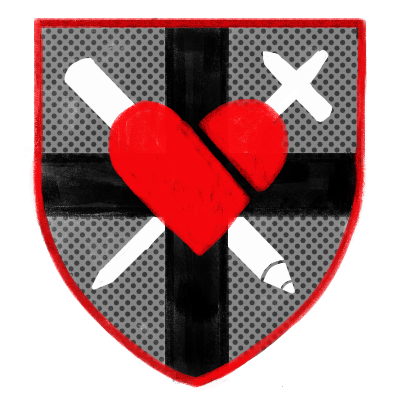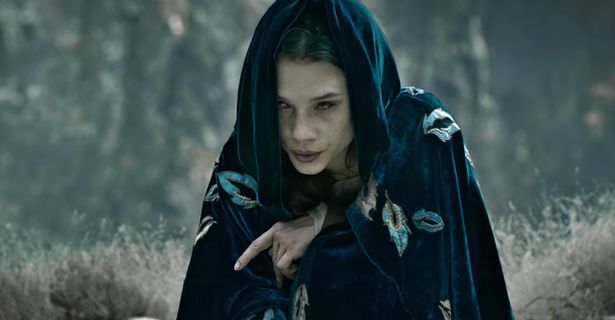Merlin! Where are you? Call your dragon… to weave a mist… To hide us. Merlin! Where are you?… Nobody shall have the sword! Nobody shall wield Excalibur… But me!
Uther in Excalibur (1981)
It seems the wisest way to criticize a movie is by whining about the absence of a character in it. Namely, everybody’s sad that King Arthur:Legend of the Sword (henceforth KALOTS) does not feature Merlin :
« But there is no Merlin: a big flaw in this movie. Presumably the famous wizard is being saved up for one of the many followups in the franchise series in the pipeline, which may or may not arrive. […] When Merlin turns up, probably in the next film, that is going to be a big showoff role and my money is on Robert Downey Jr. » Peter Bradshaw, The Guardian.
« A spoiler: there’s no Merlin to be found in Guy Ritchie’s origin story (I suspect they’re saving him for one of the five sequels reportedly in the works). » Hans Simran, The Guardian.
« In fact, Merlin makes no appearance — a curious choice when the wizard is a complex and intriguing character who lends the story a savour wholly lacking here. » Matthew Norman, Standard.
And even the British Library says, although not while criticizing the film : « There are, however, differences between the modern film and common medieval stories about Arthur. Although the film focuses on Arthur’s youth, it does not include a character called ‘Merlin’, in contrast to medieval legends about Arthur’s early life. » Chantry Westwell, blogs.bl.uk.
I think there’s two things wrong with this.
First, it’s something that people do to show they’re knowledgeable in the ways of arthuriana: their reference is T. H. White or Malory so when anything is the slightest bit different from their cliché version of King Arthur, they complain about it, sometime incoherently. Bradshaw says « It’s more of a laugh than Antoine Fuqua’s solemn take in 2004 », but in this one — even if we do not address the True Story Proved By Archeology nonsense and the Sarmatian knights — Merlin was Guinevere’s father, which is also quite odd, and had little to do with his medieval incarnations either. Norman adds « the main impact of a gargantuan snake is to remind you that the Pythons made a far more entertaining Arthurian film » but I shouldn’t need to remind you that the Pythons were pretty lax with the arthurian material too. They did not even feature Merlin — we have Tim the Enchanter instead. Another really popular one is pointing out that there are two swords Excalibur, the one pulled from stone (or an anvil) and the one bestowed by the Lady of the Lake ; while nobody really cares, Excalibur being mostly an instance of the exceptional sword of the Medieval Hero, akin to Charlemagne’s Joyeuse or Roland’s Durandal. Which you can certainly see in its most archaic incarnations. Geoffrey of Monmouth only mentions that Caliburnus was forged on the Isle of Avalon and in the Welsh texts Preiddeu Annwfn and Cullhwch ac Olwen Caledfwlch is treated similarly, as well as in some Welsh triads. This distinction between the two swords is a later one, from Boron onwards I think.
And the canon has an agglutinative nature, it’s fine if it’s part of your canon, but I don’t see why this should be your go-to example of variation within arthurian stories. I don’t see the value in this type of pedantry when there’s a hundred takes on these stories out there: why are you judging this film because of a character it does not feature instead of judging the characters it does feature?
Second, I don’t know if Switzerland had a different version of the movie but: Merlin is featured in the film.
In the first few minutes he is mentioned a few times as having disappeared after the war initiated by the Dark Mage Mordred. And he is shown later on during a flashback. We’re told that after Mordred stole the Mage King’s staff and built a used their sacred tower to increase his power, the staff was retrieved by Merlin. And we see him, albeit briefly and from behind, forging it into Excalibur on the altar of Mordred’s tower presumably, before the sword was given to the Lady of the Lake who « bound it to the Pendragon bloodline, which is stated explicitely in this review, showing I did not imagine this scene.
It’s not much but I don’t see how that means that « there’s no Merlin to be found » or « there is no character named Merlin ».
The Hollywood Reporter speculates about the supposed sequels as well, and regrets that some characters were saved for then :
« The world of magic in general — which in Legend of the Sword was all but extinct — was poised to be further explored, allowing introduction of even a character as iconic as Merlin. The lack of other iconic individuals from the Arthurian legends — such as Guinevere and Lancelot — could have made for some compelling stories. »
But there is quite clearly a character named Merlin. He is not linked to Arthur’s infancy and his role seems limited to the making of Excalibur. You could argue for his irrelevance but his inexistence? Quite a stretch. To be honest, I expected that there would be a twist and that the Mage would be revealed as being Merlin in the last five minutes.
Also odd, Matt Zoler Zeits says:
Vortigern is an unworthy King of England and a pampered sadist who owes a supernatural debt to the Lady of the Lake, envisioned here as a mass of CGI tentacles enfolding three women, one plump and the others slender and curvy.
But despite their aquatic dwellings nothing links this Ursula-like sea-witch with the Lady of the Lake. A link would have been interesting! But I fear it was this reviewer’s imagination. (and while Astrid Bergès-Frisbey was announced as Guinevere a while back she was only referred to as the Mage in the movie)
Here are two dimensions that could have been interesting but were not : a female Merlin and a link or a rivality between the siren-like wish-bestowing thingy and the Lady of the Lake, to me they seem missed opportunities more glaring than adding a bearded guy to play Merlin ten minutes, because it shows unused potential in the decisions made by the director.
There’s a lot of good reasons to hate KALOTS. But as with everything arthurian, quite a lot of people end up disliking a movie because of things outside the scope of the movie, or even an imaginary version of /the movie, rather than judging it on its own merits.


Laisser un commentaire